Agritourism: Adapting to life during the pandemic
- Published
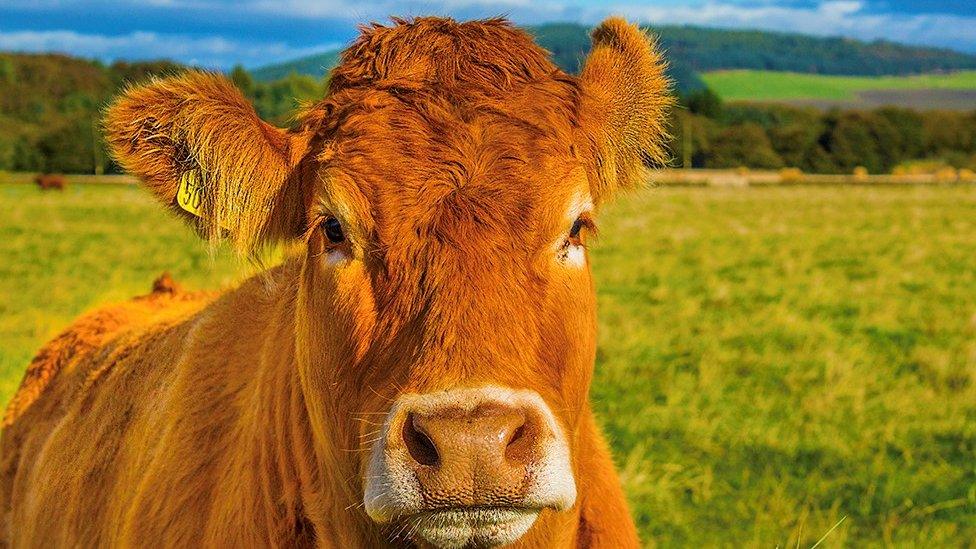
Farming was one of the industries that carried on under even the strictest coronavirus lockdown.
However, many associated agritourism ventures across the country were forced to stop.
It hit their business hard but less stringent restrictions now in place - and an emphasis on meeting outdoors - have assisted a revival.
A range of operations around Scotland are now enjoying something of a surprise late season rush.
'It went crazy'
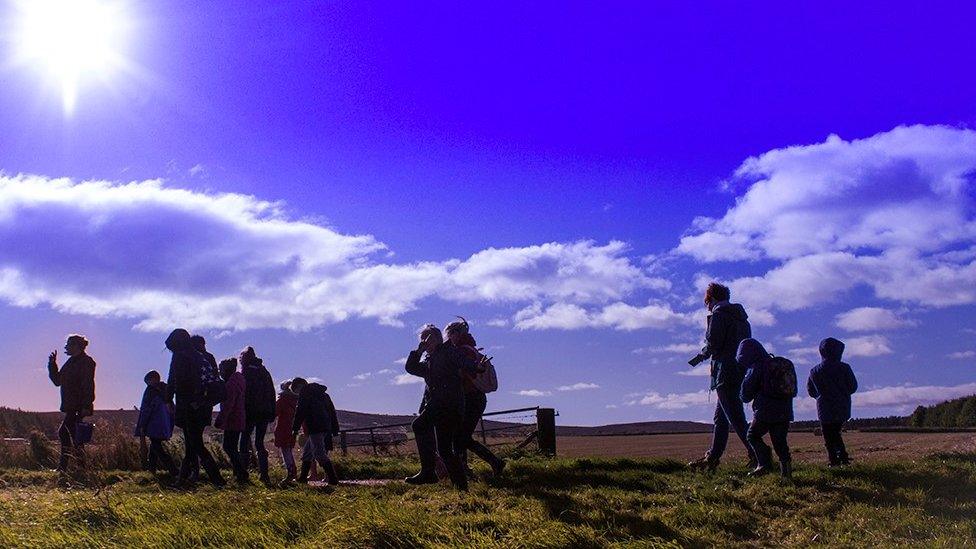
Newton Farm would not usually expect any visitors in November
Louise Nicoll runs award-winning Newton Farm Holidays and Tours at Inverarity in Angus with her husband Graeme.
They offer bed and breakfast, self-catering accommodation and farm tours.
When full lockdown was first imposed in March, she took to social media to keep people informed of what was going on.
"All through lockdown I made a conscious decision that every day I would post three times a day on Facebook to share what was happening on the farm," she said.
"It went crazy. We just got this huge amount of engagement and it started getting further and further away."
As they reopened, people who had booked for earlier in the year started to come back and they also attracted some surprising new visitors.
"We had people come and stay from the local town only five miles away," she said.
Although the initial lockdown closed them down, it allowed them to get on with farming and plan for the future.
And the business is now enjoying a surprising surge.
"I wouldn't expect to see anybody in November and every weekend we are pretty much nearly full," she added.
Scotland's larder
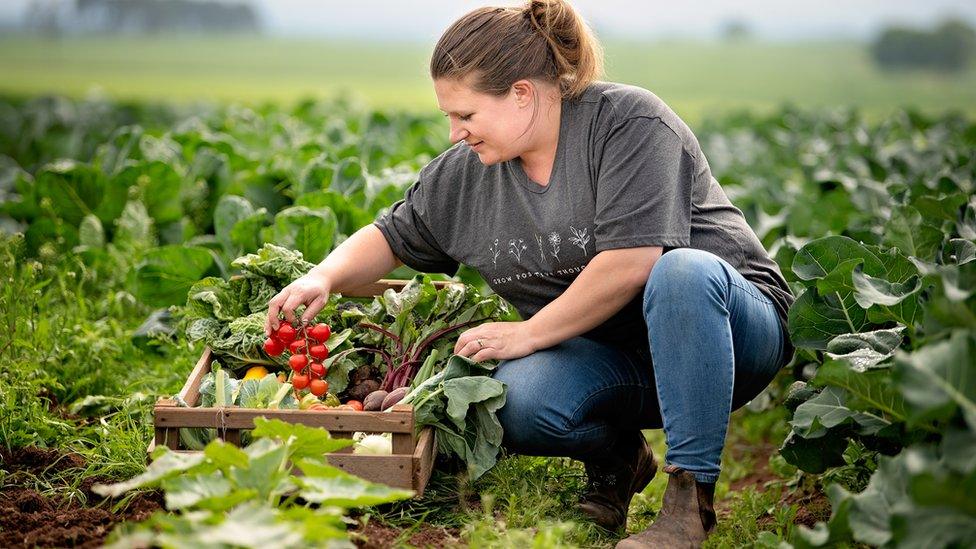
Fiona Smith said lockdown had let people appreciate local food
Fiona Smith of Westerton Farmers in south Aberdeenshire said they used to sell home grown vegetables from a "small shed with an honesty box".
Full lockdown suddenly saw interest in their produce soar and they could "barely keep up with demand".
Soon they were teaming up with other local businesses to offer a wider range of products.
"With the increased footfall to the shop we decided to look at ways to engage with new and existing customers, and came up with pick your own tatties," she said.
"This was something which wasn't offered anywhere locally and it's a great way to show people how tatties are grown."
She said lockdown had given people greater awareness of the products on their doorstep.
"Agritourism is going to be massive in the coming years as I think people have got a new found appreciation for Scotland's larder, outdoor spaces and getting back to nature," she said.
"I'm really excited to see what the future holds for this niche part of tourism."
'Little bit of outdoors'
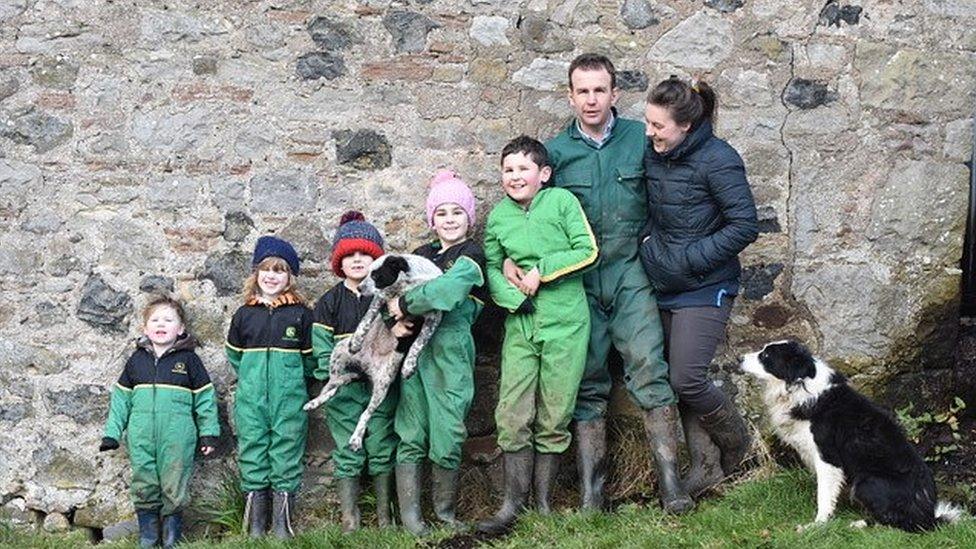
The Jackson family were all set to diversify when Covid struck
The Jackson family has been running its farm on nearly 500 acres near Jedburgh in the Scottish Borders since the early 1970s.
Looking to diversify, they were set to open the doors on their agritourism venture in April this year for lambing time farm visits and tours. It did not go as planned.
"We were, of course, shut down before we began," said Jasmine Jackson.
However, they also made up their minds that the show would go on by filming live in the fields.
"We had children doing homework to the videos, school classes taking part and lambs being named on the live streams," said Ms Jackson.
"It was beneficial for our mental health and so many others watching."
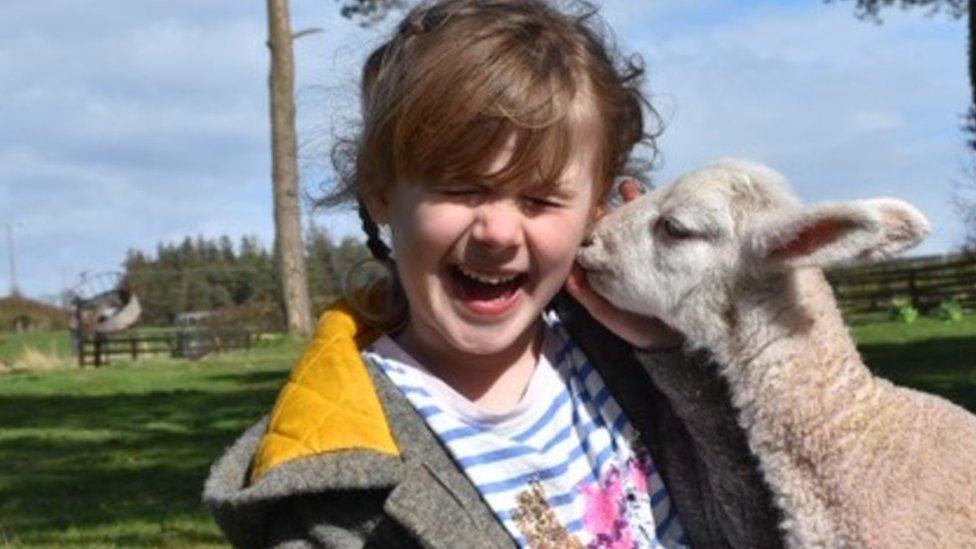
She said many of the virtual visitors had since come to the farm in person to thank them for the "little bit of outdoors" they provided.
As restrictions have eased they have been running outdoor events which Ms Jackson said had proved "incredibly popular".
"People have really embraced the idea of getting wrapped up, wellies on and enjoying the farm no matter the weather," she said.
"Lockdown has been a very difficult time for us as a business and has vastly reduced the opportunities of what we are able to offer.
"However, it has really made people realise how much outdoor experience benefits mental health, runs energy off the children and how much the farm has to offer.
"It's not all been bad."